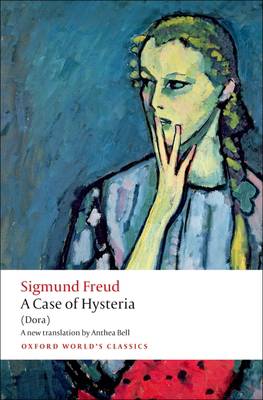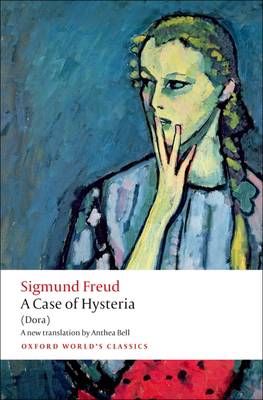
- Afhalen na 1 uur in een winkel met voorraad
- Gratis thuislevering in België vanaf € 30
- Ruim aanbod met 7 miljoen producten
- Afhalen na 1 uur in een winkel met voorraad
- Gratis thuislevering in België vanaf € 30
- Ruim aanbod met 7 miljoen producten
Zoeken
Omschrijving
"I very soon had an opportunity to interpret Dora's nervous coughing as the outcome of a fantasized sexual situation." A new translation of one of Freud's most important and intriguing texts, A Case of Hysteria-- popularly known as the "Dora Case"--affords rare insight into how Freud dealt with patients and interpreted what they told him. As the 18-year-old "Dora" underwent psychoanalysis, Freud uncovered a remarkably unhappy and conflict-ridden family, with several competing versions of their story, and his account of "Dora's" emotional travails is as gripping as a modern novel. The narrative became a crucial text in the evolution of his theories, combining his studies on hysteria and his new theory of dream-interpretation with early insights into the development of sexuality. This landmark work is freshly translated by Britain's leading translator of German literature, Anthea Bell, while leading authority Ritchie Robertson provides a fascinating introduction which sets the work in its biographical, historical, and intellectual context. Robertson sheds light in particular on the unwitting preconceptions and prejudices with which Freud approached his patient, highlighting both his own blindness and the broader attitudes of turn-of-the-century Viennese society. The book also features explanatory notes that highlight the literary and critical allusions that Freud worked into his text, plus an up-to-date bibliography that helps the reader to explore the topic further. About the Series: For over 100 years Oxford World's Classics has made available the broadest spectrum of literature from around the globe. Each affordable volume reflects Oxford's commitment to scholarship, providing the most accurate text plus a wealth of other valuable features, including expert introductions by leading authorities, voluminous notes to clarify the text, up-to-date bibliographies for further study, and much more.
Specificaties
Betrokkenen
- Auteur(s):
- Vertaler(s):
- Uitgeverij:
Inhoud
- Aantal bladzijden:
- 176
- Taal:
- Engels
- Reeks:
Eigenschappen
- Productcode (EAN):
- 9780199639861
- Verschijningsdatum:
- 6/04/2013
- Uitvoering:
- Paperback
- Formaat:
- Trade paperback (VS)
- Afmetingen:
- 127 mm x 193 mm
- Gewicht:
- 136 g

Alleen bij Standaard Boekhandel
+ 27 punten op je klantenkaart van Standaard Boekhandel
Beoordelingen
We publiceren alleen reviews die voldoen aan de voorwaarden voor reviews. Bekijk onze voorwaarden voor reviews.











